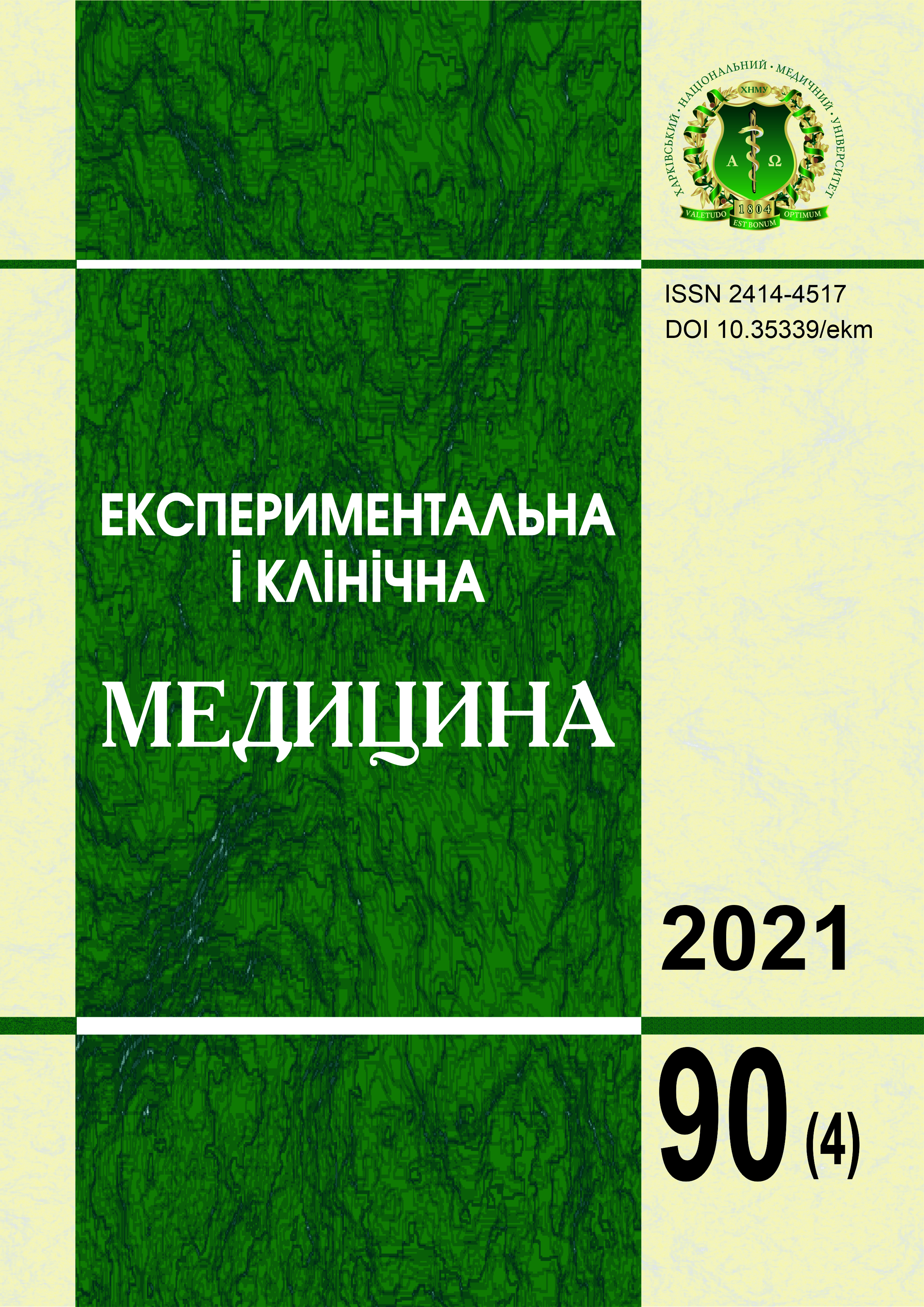Abstract
A variety of methods and approaches are used for the surgical treatment of retinal detachment, among which high-frequency electrocoagulation through the suprachoroidal access has attracted the attention of researchers. The research question concerned the selection of the optimal mode of electrocoagulation with the help of a monopolar instrument of the original design, during which a strong chorioretinal adhesion occurs in a short period of time after surgical intervention, there is no need for tamponade, and the destruction of cells of chorioretinal structures is minimized, which is associated with the temperature factor of electrocoagulation. The study was conducted on 52 rabbits (104 eyes), which were divided into 4 groups: Group I – exposure voltage 10–12 V, frequency 66 kHz, current strength 0.1 A (16 animals, 32 eyes); Group II – exposure voltage 12–14 V, other parameters are identical (16 animals, 32 eyes); Group III – exposure voltage 14–16 V, other parameters are identical (16 animals, 32 eyes); Group IV– 4 intact rabbits, 8 eyes (control). The animals were euthanized, the eyes were enucleated. Fragments with areas after electrocoagulation were fixed on a device of the original design, which measured the strength of the chorioretinal adhesion on an electronic jewelry scale by pulling a thread tied to the sample until the sample ruptured. The tissues of the chorioretinal complex were also studied by light microscopy after staining histological sections with hematoxylin-eosin. According to indicators of chorioretinal junction strength, the optimal exposure voltage was 10–12 V. Destruction of cells of the chorioretinal complex at this voltage did not differ from destruction using voltages of 12–14 V and 14–16 V, but the strength of chorioretinal junction was the greatest after 1 hour. 1 week and 2 weeks after surgery.
Keywords: high-frequency electrocoagulation, chorioretinal surgery, retinal detachment, strength of chorioretinal adhesion.
References
Putienko AA, Aslanova VS. Detachment of the retina. Odessa: Astroprint; 2014. 253 p. [In Russian].
Summanen P. Retinal detachment: Clinical guideline No.00814 based on evidence-based medicine. Ministry of Health of Ukraine, Duodecim Medical Publications Ltd; 2017. 4 p. [Internet]. Available at: https://guidelines.moz.gov.ua/documents/3594 [accessed 30 Nov 2021].
Rodin SS. New technologies for diagnostics and vitreoretinal surgery of complicated forms of retinal detachment. Dis... Dr. Med. Sc. spec. 14.01.18 – Ophthalmology. Odessa: Filatov Institute of Eye Diseases and Tissue Therapy of the National Academy of Medical Sciences of Ukraine; 2004. 402 p. [In Russian].
Antaki F, Dirani A, Ciongoli MR, Steel DHW, Rezende F. Hemorrhagic complications associated with suprachoroidal buckling. Int J Retina Vitreous. 2020;6:10. DOI: 10.1186/s40942-020-00211-6. PMID: 32318273.
Patent of Ukraine No.28112 on 16 Oct 2000 "Instrument for joining soft biological tissues". Inventor Paton B.E. The owner E.O. Paton Institute of Electric Welding NASU. Bulletin "Industrial Property". 2000;(5). Not valid on 30 Nov 2021. Available at: https://is.gd/Fvvx2Q [in Ukrainian].
Nemet A, Moshiri A, Yiu G, Loewenstein A, Moisseiev E. A review of innovations in rhegmatogenous retinal detachment surgical techniques. J Ophthalmol. 2017;2017:4310643. DOI: 10.1155/2017/4310643. PMID: 28584664.
Serhiienko AM. Proliferative vitreoretinal processes in rhegmatogenous retinal detachment, diabetic retinopathy and eye injury (pathogenesis, clinic, diagnosis, surgical treatment). Dis... Dr. Med. Sc. Spec. 14.01.18 – Ophthalmology. Odessa: Filatov Institute of Eye Diseases and Tissue Therapy of the National Academy of Medical Sciences of Ukraine; 2009. 366 p. [In Ukrainian].
El Rayes EN, Oshima Y. Suprachoroidal buckling for retinal detachment. Retina. 2013;33(5):1073-5. DOI: 10.1097/IAE.0b013e318287daa5. PMID: 23612022.
Umanets N, Pasyechnikova NV, Naumenko VA, Henrich PB. High-frequency electric welding: a novel method for improved immediate chorioretinal adhesion in vitreoretinal surgery. Graefes Arch Clin Exp Ophthalmol. 2014;252(11):1697-703. DOI: 10.1007/s00417-014-2709-0. PMID: 25030235.
Saoud O, Serhiienko A, Umanets M. Experimental study of tissue adhesion strength after high-frequency microsurgical electrowelding in transvitreal and suprachoroidal approaches. Materials of the scientific and practical conference "Ophthalmic Surgery in Ukraine – 2021" (Ophthalmic Light – 2021). Kyiv, 2021. [In Ukrainian].
Zauberman H. Tensile strength of chorioretinal lesions produced by photocoagulation, diathermy, and cryopexy. Br J Ophthalmol. 1969;53(11):749-52. DOI: 10.1136/bjo.53.11.749. PMID: 5358520.
Patent of Ukraine No.44805 on 15 Mar 2002 "The method of soft biological tissues joining and an instrument for its implementation". Inventor Paton B.E. The owner E.O. Paton Institute of Electric Welding NASU. Bulletin "Industrial Property". 2002;3. Not valid on 30 Nov 2021. Available at: https://is.gd/ZQx9sX [in Ukrainian].
Mikhail M, El-Rayes EN, Kojima K, Ajlan R, Rezende F. Catheter-guided suprachoroidal buckling of rhegmatogenous retinal detachments secondary to peripheral retinal breaks. Graefes Arch Clin Exp Ophthalmol. 2017;255(1):17-23. DOI: 10.1007/s00417-016-3530-8. PMID: 27853956.
Umanets NN, Ulyanov VA. Morphological changes in the chorioretinal complex of the rabbit immediately after exposure to various modes of high-frequency electrowelding of biological tissues compared to threshold diode endolaser coagulation. Ophthalmological journal. 2013;(3):66-70. Available at: http://nbuv.gov.ua/UJRN/Ofzh_2013_3_14 [In Russian].

